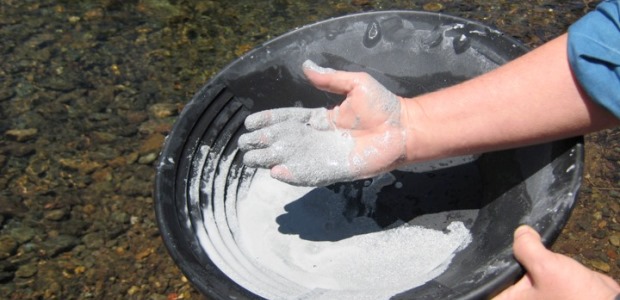
Natural Clays Effective Against Drug-Resistant Bacteria
The researchers showed that certain clays kill bacteria, including many drug-resistant pathogens. "Working with Mayo Clinic, we showed that these clays also diminish populations of bacterial biofilms, as well as bacteria common in wounds that are more resistant to drugs," said Arizona State University biogeochemist Lynda Williams.
Researchers from Arizona State University and the Mayo Clinic have found that one type of clay, Oregon blue clay, may help fight disease-causing bacteria in wounds, including treatment-resistant bacteria, according to their paper published in the International Journal of Antimicrobial Agents.
The National Science Foundation highlighted the findings in an Aug. 21 news release.
"The study is an important advance in understanding how clays, specifically blue clay from Oregon, have shown medicinal properties by attaching to pathogenic bacteria," said Enriqueta Barrera, a program director in the NSF Division of Earth Sciences, which funded the research.
The researchers showed that certain clays kill bacteria, including many drug-resistant pathogens. "Working with Mayo Clinic, we showed that these clays also diminish populations of bacterial biofilms, as well as bacteria common in wounds that are more resistant to drugs," said biogeochemist Lynda Williams of ASU, a co-author of the study. "The results support our efforts to design new antibacterial drugs using natural clays."
Biofilms form when bacteria attach to surfaces and develop a film or protective coating, making them relatively resistant to antibiotics. Biofilms appear in two-thirds of the infections seen by health care providers, according to the release. "We showed, however, that this reduced iron-bearing clay can kill some strains of bacteria under the laboratory conditions used, including bacteria grown as biofilms, which can be particularly challenging to treat," said Robin Patel, an infectious disease physician and clinical microbiologist at the Mayo Clinic and lead author of the study.
In laboratory tests, the researchers found the clay has antibacterial effects against bacteria such as Escherichia coli and Staphylococcus aureus, including strains such as carbapenem-resistant Enterobacteriaceae and methicillin-resistant Staphylococcus aureus.
NSF reported that their research is preliminary, and the scientists cautioned both that just one concentration of the clay suspension was tested and not all types of clay are beneficial.
The research team also included Katherine Caflisch, Suzannah Schmidt-Malan, Jay Mandrekar, Melissa Karau, and Jonathan Nicklas of the Mayo Clinic.